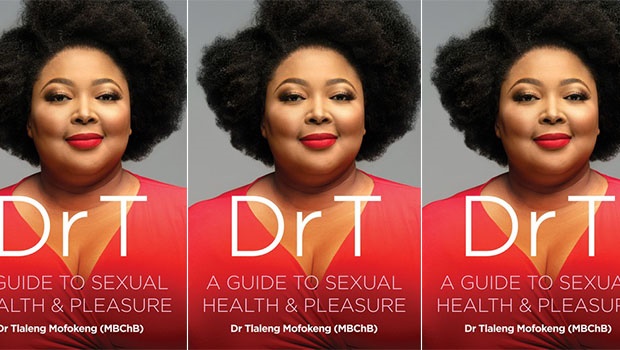
Dr Tlaleng Mofokeng says her book, titled A Guide to Sexual Health and Pleasure, is a medical book, however, it may not be the kind we are used to.
The book is divided into three sections: the first section is about physiology, the second part deals with pleasure and the third section deals with activism. Within these sections Dr Tlaleng covers a wide range of topics from vaginal cleaning, to puberty, to anatomy lessons and sexual consent.
In the book Dr Tlaleng shares her view that women’s sexuality and sexual health is underrepresented in the field of medicine, so in her contribution to literature she also includes a few pictures and graphics but cautions they are not “juicy” because it’s not “THAT kind of book”.
One of the most curious topics in the book, which is also rather topical, is the matter of consent.
READ MORE: 8 embarrassing diet side effects we really need to start talking about now
Dr Tlaleng says often people who we look to for information are themselves deficient, so she breaks down questions to ask yourself that may help you gauge consent. She gives the following account:
“People will come [to see me] and say ‘I have a problem, I don’t have an orgasm’. Couples would come also and say ‘we’re having trouble, we want to have a child but we can’t have sex’. Often people think you’re going to do tests, but the discussion is very important because you need to understand what’s happening in relationships, what’s happening with individuals that they are not having fulfilled sexual experiences.
READ MORE: 4 most common questions women ask about their sexual health
“The question I ask women a lot is: are you having sex when you want to have sex? Who decides when you are having sex? It’s often an erection that decides that it’s time for sex. Then I ask them, let’s say you do want to have sex, who decides how you’re going to have sex? And then during sex, how does your partner know that this is the right move? Is there feedback?
“Then the other question is, when does it end? It ends with an ejaculation. So sex starts with an erection and ends with an ejaculation,” says Dr Tlaleng.
She adds: “So talk about what is it that you want. Because we think consent is a matter of do you want to have sex, yes or no. That is part of consent, the ongoing conversation is part of consent.”
READ MORE: The world’s first consent condom requires four hands otherwise it won’t open
She says some people think consent is boring and that it will disturb foreplay but ocnsent is “the constant affirmation that I want to be here, I’m wanted and this feels good – continue”.
Paying close attention to your body and how it responds in certain circumstances can be hugely beneficial to answer questions around consent and overall sexual health.
Dr Tlaleng urges us to know our “own normal” by – for example – doing our own breast exams and doing self vulva checks. “Look at the skin, look at the hair distribution, look if there are any lumps or bumps that you’re not sure of… That’s how you learn to be in tune with your body, look and pay attention,” she says.
She adds that sexual health is not about having sex all the time but it is about being affirmed.
Sign up to W24’s newsletters so you don't miss out on any of our stories and giveaways.




 Publications
Publications
 Partners
Partners










